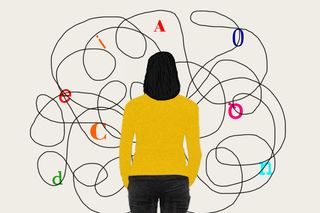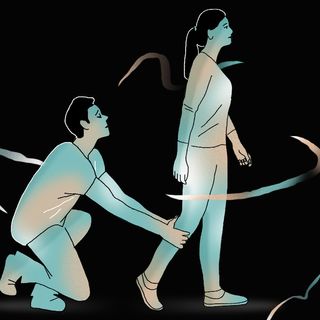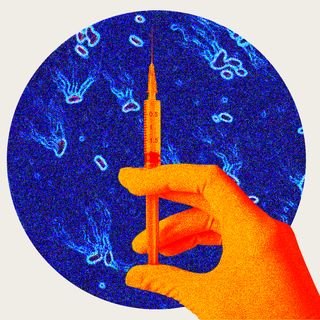
People With Dyslexia May Be Better Than Others at Making Some Decisions, Suggests Research
“The deficit-centered view of dyslexia isn’t telling the whole story.”

A new study could challenge the way we treat dyslexia for the better. So far we’ve had a “deficit approach” to it — meaning that we view it as a shortfall in an individual. But new research shows that people with dyslexia may have their brains wired such that they’re better at decision-making in some tasks than others — to an extent that, evolutionarily speaking, are life-saving.
“Approaches to explaining DD [Developmental Dyslexia] must account for both the difficulties and the enhanced abilities that are typical of people with DD,” note the study’s authors, published last week in Frontiers in Psychology. While people with dyslexia may find dealing with text difficult, their superior abilities in exploration — for instance, spatial and dynamic reasoning — could benefit them and their communities at large too. “[W]e argue that the form of cognition represented by DD plays an essential role in enabling humans to adapt,” they add.
The researchers used an evolutionary framework called “exploration-exploitation” — one that analyzes how humans interact with the world to make decisions. Faced with a set of environmental factors, one has to weigh the balance between “exploiting” — acting on the knowledge one has — or “exploring” — scoping things out more to take the longer view. The study found that people with dyslexia are much better at exploring, accounting for multiple things to chart a long-term perspective. This explains why the “exploiting” tasks — such as reading and writing — are harder.
What has gone unacknowledged so far is the areas where dyslexia provides an advantage. Striking a balance between these two traits is essential to a community’s survival, but somewhere along the way, we’ve lost sight of the different advantages that different people can offer to our collective well-being.
Related on The Swaddle:
What It’s Like To Live With: Dyslexia
“We believe that the areas of difficulty experienced by people with dyslexia result from a cognitive trade-off between exploration of new information and exploitation of existing knowledge, with the upside being an explorative bias that could explain enhanced abilities observed in certain realms like discovery, invention, and creativity,” said Helen Taylor, lead author of the study. The study also backs what previous research has found about people with dyslexia being better at spatial reasoning and predicting outcomes, Science Alert reported.
The logic of reframing the narrative around dyslexia goes like this: a large percentage of the global population, irrespective of location, or lives with it. Dyslexia is also genetic, so it must mean that evolution has chosen dyslexia to continue along generations for some reason. Further, reading and writing were cultures only recently developed in the story of human beings — making dyslexia a relatively recent phenomenon in our history.
The study, then, is arguably pioneering for the way it affirms what advocates of neurodiversity have been saying for a long time: that many neurodevelopmental conditions aren’t deficient but different, and many come with strengths that we have just not learnt to recognize yet.
It also points to gaps in dominant models of education, where an emphasis on rote learning and “exploitation”-oriented pedagogy makes people classified as having learning disabilities feel deficient. “What also bothers me about the education system is that people with disabilities, who might need extra time to write their exams, are seated in a separate room away from everyone else,” Aashna Parikh, a person with dyslexia, told The Swaddle. The experience is one that is often stigmatized and laden with shame and humiliation — all because there is no effort toward understanding with people with neurodivergence have to offer. This study could change that.
“Our failure to recognize these differences as exploratory specialization can harm individuals with DD by subjecting them to social structures that limit opportunities or promote harm: a form of structural violence,” the study noted.
Exploration and exploitation complement each other, and “de-emphasizing those parts geared toward exploration tips the system excessively toward refining existing solutions,” the study showed. The findings point to a direction where harnessing the cognitive advantages associated with dyslexia may actually be good for all of us as a society.
Rohitha Naraharisetty is a Senior Associate Editor at The Swaddle. She writes about the intersection of gender, caste, social movements, and pop culture. She can be found on Instagram at @rohitha_97 or on Twitter at @romimacaronii.
Related


What It’s Like To Live With: Dependent Personality Disorder
